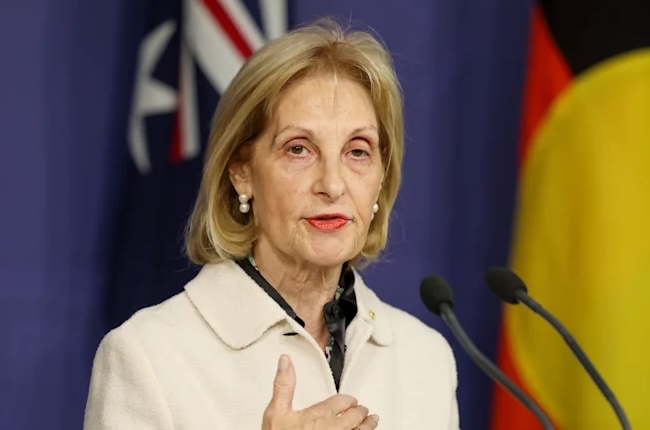Dr Evan Jones continues his six-part analysis on the series of parliamentary inquiries into systemic bank corruption as the victims of fraudulent foreclosures continue to wait for justice.
Read the other parts of this series:
THE CURRENT Parliamentary inquiry into “The Impairment of Customer Loans” hears from the CBA itself.
The CBA counter-attacks
The CBA appeared before the Parliamentary Joint Committee (with nine members present) on 2 December. Representing the bank were David Cohen, Group General Counsel, and David Craig, Chief Financial Officer.
There were the usual absurd claims about working with borrowers through any problems. This from Cohen:
“… the average period, or the average number of days where a customer is being looked after by our team that manages troubled loans is about 550-odd days, I believe. That is the time from when the loan becomes sufficiently troubled to be taken out of the hands of the normal relationship manager and goes into this team to resolution. The reason for that is because our practice is to try to come to a resolution that does not involve a sale, or a forced sale of the properties. That is the last resort. It is not the first resort. … So it is actually not in our interest to move to a quick resolution that involves a receivership.”
This claim is complete and utter bullshit.
Senator O’Neill called Cohen on this claim, asking for
“a time line and evidence documenting the bank’s attempt to assist [the foreclosed borrowers providing submissions and evidence]”.
David Craig similarly gushes:
Chair [Fawcett}: What I am trying to understand is: what are the things that motivate the behaviours of your executive and the people who are managing the credit business?
Craig: Seeing satisfied and excited customers wanting to do business with this us. …
Chair: That is very noble.
The chutzpah defies belief.
Then there’s the dissembling and the lies. For example:
“Craig: I think it is really important to understand what default is. A default is when a customer breaches their loan agreement. We do not default accounts. We have a contract between us and a customer and, if a customer does not pay us their interest or has poor financial results or whatever, they may well be in default of their loan agreement. But we do not default customers.”
Craig again:
Let me emphasise: the price adjustment mechanism allowed for changes to the quantity and quality of Bankwest's loan book at the time it was bought by CBA; it did not allow for any claw-back for loans which subsequently went bad. …
“In conclusion, there was no way for CBA to benefit from any loan that went into default after the day it took ownership of Bankwest. CBA did not engineer defaults, contrary to claims by witnesses, and had no incentive to do so.
The CBA consistently denies a motive to default Bankwest borrowers via a purchase price “clawback” mechanism, but admits to it in practice. Default of the Bankwest loans on the books at the time of purchase are precisely what is at issue with respect to the clawback controversy.
Donations to LNP. CBA donations to Liberal Party 2012/13: ExhibitA: $512,200 ExhibitB: $426,400 #auspol #comminsure https://t.co/RTgprdHcuh
— Je Suis Tintin (@geeksrulz) March 24, 2016
There was no early cut-off point — the CBA defaulted Trevor Eriksson years later, evidently out of revenge for Eriksson going public with his treatment. The CBA did engineer defaults, as evidenced by witnesses, and it had multiple incentives to do so — partly financial (the clawback mechanism), partly regulatory (Basel capital requirements) and partly cultural (pure right-to-rule bastardry).
The most important element of the CBA appearance on 2 December was the strategic attempt to demolish systematically the integrity of victim Rory O’Brien.
They bizarrely claimed that the CBA had nothing to do with O’Brien because he borrowed from Bankwest and another institution. But Bankwest was by 2009 a wholly-owned subsidiary of the CBA, wtih a CBA flunkey installed at its head. O’Brien’s previous excellent relationship with Bankwest staff stalled immediately when the CBA started dictating the terms to now subordinate Bankwest staff.
Cohen & Craig also assert that the project was a mess. Among the claims, O’Brien had mislead potential apartment buyers, that his claims regarding the scale of committed purchasers’ deposits was substantially inflated, that the project was far from completed in being beset with building flaws, and so on.
For example, Cohen referred to 57 pages of building faults that remained to be rectified, implicitly denying O’Brien’s claim as to the state of completeness of the project. But the project comprised 104 dwellings of 3 bedrooms each. The scale of the small-scale components of the interior fittings is thus significant, to be remedied as per convention, and it becomes a cynical vehicle for the CBA to deny the veracity of O’Brien’s claim.
These claims by key CBA executives regarding O’Brien, being replete with fine detail, could be taken by a know-nothing outsider as credible. On the contrary; they are also complete bullshit.
The project was effectively complete at the time of the CBA purchase of Bankwest. There was approximately $100 million in funds committed by would-be unit buyers, which a Malleson’s lawyer, on O’Brien’s behalf, attempted to get Bankwest (the CBA) to process as a means of dramatically reducing the debt owed. The CBA/Bankwest (and receiver Korda Mentha subsequently) declined to proceed with these contracts, and the receiver sold the $250 million complex for $56 million.
@TonyHWindsor The bigger they are…. Banks, the ASX -- a Federal ICAC is imperative.
— Alice Oppen (@OppenAoppen) March 21, 2016
https://t.co/HfXbBBNxF5
This time, Committee members were less than enthusiastic about the bank’s spiel.
Out of the blue, Philip Ruddock asked the bank to implement a compensation scheme for those borrowers deemed (by “experts”) to be wrongly treated. Cohen responded by querying what “universe” Ruddock was referring to. Ruddock reiterated that Cohen and Craig had themselves claimed that the numbers for whom receivers were sent in for the relevant period (in addition to the claim that foreclosures always involved receivers) was less than 200.
Cohen spontaneously accepted the prospect of a compensation scheme, claiming that it was consistent with the bank’s culture, with not a hint of irony failing to acknowledge the strategically aborted compensation schemes for the Storm Financial scandal and the Commonwealth Financial Planning scandal.
Behind Ruddock’s request was an implicit threat. He noted that this road could be “a fallback strategy” to calling for a Royal Commission. Ruddock noted that the bank had perennially claimed that we “do not want to see people in these situations …”. Effectively, put your money where your mouth is.
Ruddock subsequently reiterated the implicit threat:
“Perhaps if you would take it on notice, because I suspect the way in which you have dealt with it encourages me to look at what more robust approach we should take.”
This threat has been received with optimism by some borrowers, and the scribes have realised its significance — for example, Richard Gluyas in The Australian (9 January 2016).
But the Committee members could have gone in harder. They had O’Brien’s testimony (Part 1) that Cohen had offered to settle with O’Brien to pre-empt a court re-hearing following an appeal victory for O’Brien in which the three appeal judges decided that the bank had something to answer. And they heard that Cohen had reneged on the verbal deal, threatening O’Brien, with O’Brien compelled to come out with effectively nothing.
If the bank had the goods on O’Brien’s claims, with contrary evidence ready to demolish O’Brien in court, why did it not take that option? A pro-bank court judgement would have had exemplary publicity value. Cohen’s despicable behaviour regarding the proposed settlement highlights that the bank had something to hide. The PJC members should have confronted Cohen with this issue.
This is the fourth in an Independent Australia six-part series analysing ongoing bank corruption and ineffectual parliamentary inquiries, as victims remain uncompensated.
Part 3 in Dr Evan Jones' in-depth analysis of the latest Senate inquiry into bank corruption - happening at a... https://t.co/8ALxSc26mz
— IndependentAustralia (@independentaus) March 19, 2016

This work is licensed under a Creative Commons Attribution-NonCommercial-NoDerivs 3.0 Australia License
Monthly Donation
Single Donation
Support independent journalism. Subscribe to IA for just $5.









